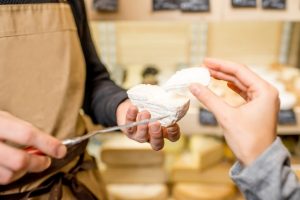 Osteoarthritis has been named one of the leading causes of disability around the world and is one of the most prevalent musculoskeletal disorders in the elderly. It is primarily characterized by pain in the hips and knees. The condition is one that costs healthcare systems dearly due to the need for in-home care for patients with advanced mobility issues and for the high risks of comorbidity associated with it.
Osteoarthritis has been named one of the leading causes of disability around the world and is one of the most prevalent musculoskeletal disorders in the elderly. It is primarily characterized by pain in the hips and knees. The condition is one that costs healthcare systems dearly due to the need for in-home care for patients with advanced mobility issues and for the high risks of comorbidity associated with it.
Because of this financial burden, it is a priority for researchers and medical practitioners to be able to identify lifestyle or other factors that may be able to slow or stop the development of the condition.
Advertisement
Previous research has shown a connection between an increased dairy intake and a lowered risk of developing osteoarthritis, but information has still been lacking in this area. A new group of researchers sought to clarify some of the areas of confusion found in past studies.
There has been limited information comparing the type and quantity of dairy consumption in different countries, as well as on the effects of different dairy categories (e.g. fermented dairy, non-fermented dairy, low-fat, or full-fat dairy). The hypothesis of the study was that increased consumption of dairy is related to decreased risk of developing knee osteoarthritis.
There were 3,010 participants between the ages of 40 and 75 included in the study. The participants filled out a questionnaire and received a physical examination to confirm the presence of knee osteoarthritis. Dairy consumption was measured using an in-depth questionnaire, which took into account fermentation, fat content, and dairy type. Of all the participants, 427 were diagnosed with knee osteoarthritis, which is around 14 percent of the total sample population.
Full-Fat Dairy Consumers Show 30 Percent Less Osteoarthritis
The researchers reported that those with the highest intake of full-fat dairy and Dutch cheese showed the lowest prevalence of knee osteoarthritis. This group of participants showed an estimated 30 percent decrease in their risk of developing the condition. The researchers did not find statistically significant associations between the prevalence of knee osteoarthritis and any other category of dairy. This included milk consumption, which has been found to have an inverse correlation with knee osteoarthritis in other studies performed previously.
The researchers did report that negative causation may be at work in this case. In other words, many patients who are diagnosed with knee osteoarthritis also suffer from obesity or being overweight. Part of the treatment for obesity is to lower caloric intake. Full-fat dairy and Dutch cheese are both calorie dense, meaning that intake of these products is likely to be lower in patients trying to lose weight, which would be many of the patients already diagnosed with knee osteoarthritis.
It is possible, then, that these results are caused by negative causation due to the treatment of obesity rather than any causation between the intake of full-fat dairy or Dutch cheese and a lower prevalence of knee osteoarthritis. While the results of the study are in line with the results from previous research, it is still unclear what the mechanisms behind the relationship truly are.
Also read:
- Natural Remedies for Osteoarthritis Pain Relief
- Osteoarthritis knee pain relief at home: Easy tips and natural remedies
